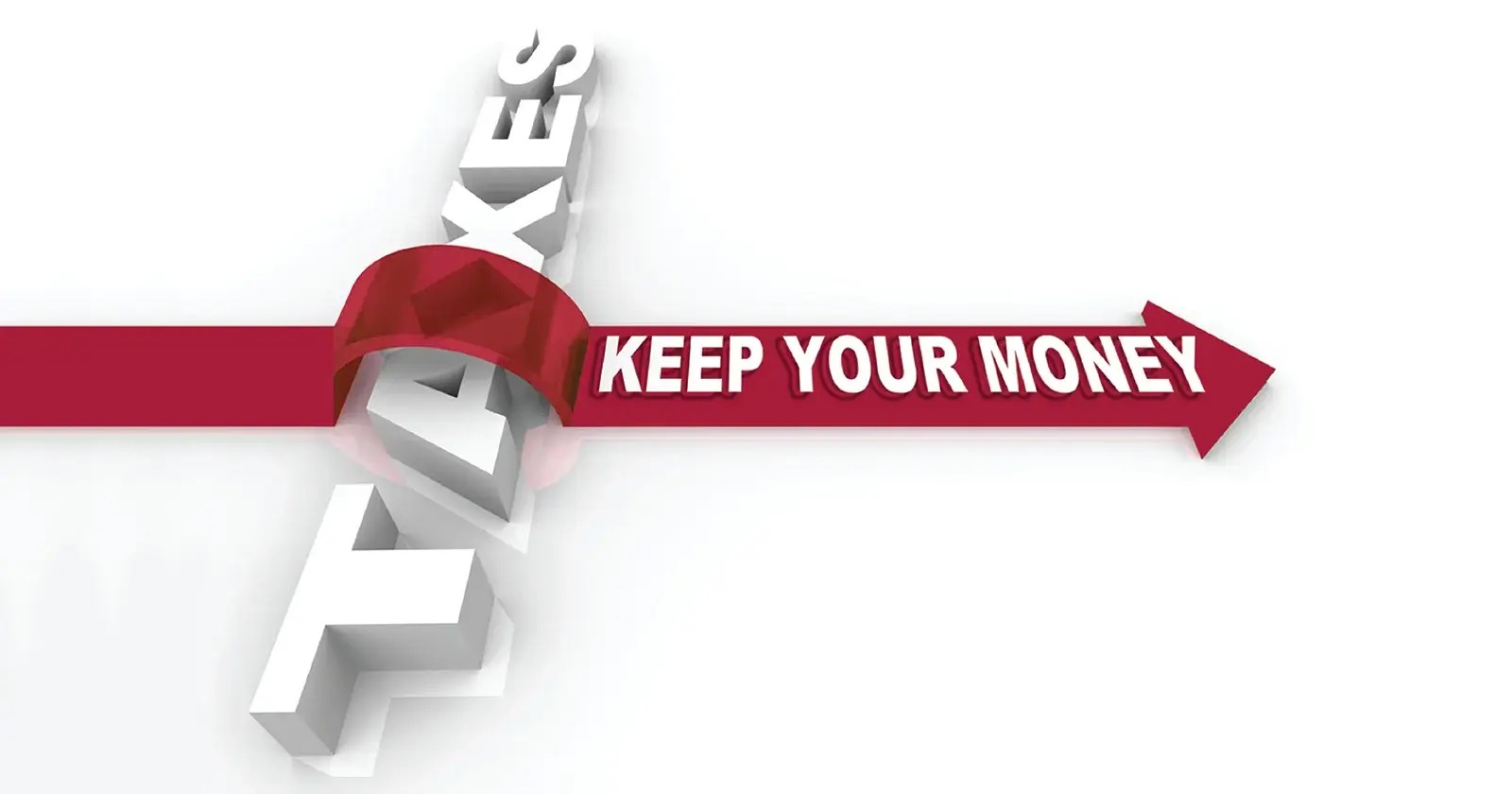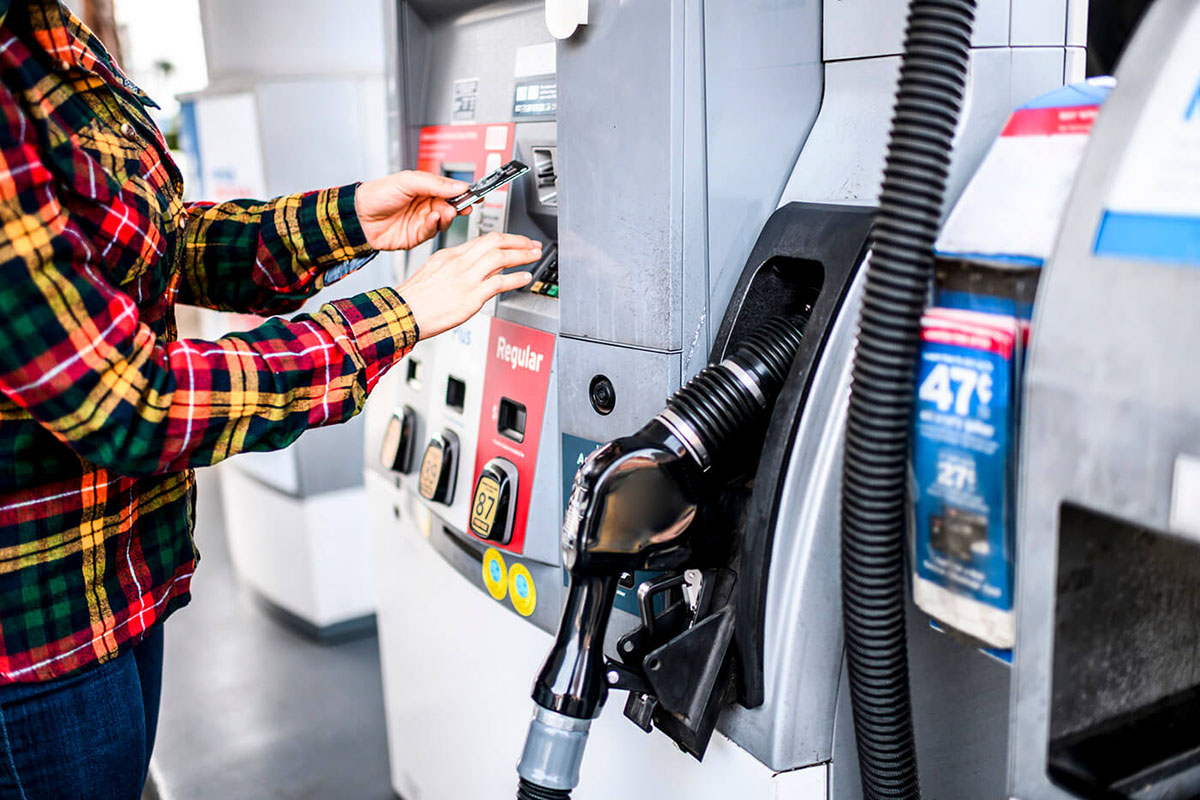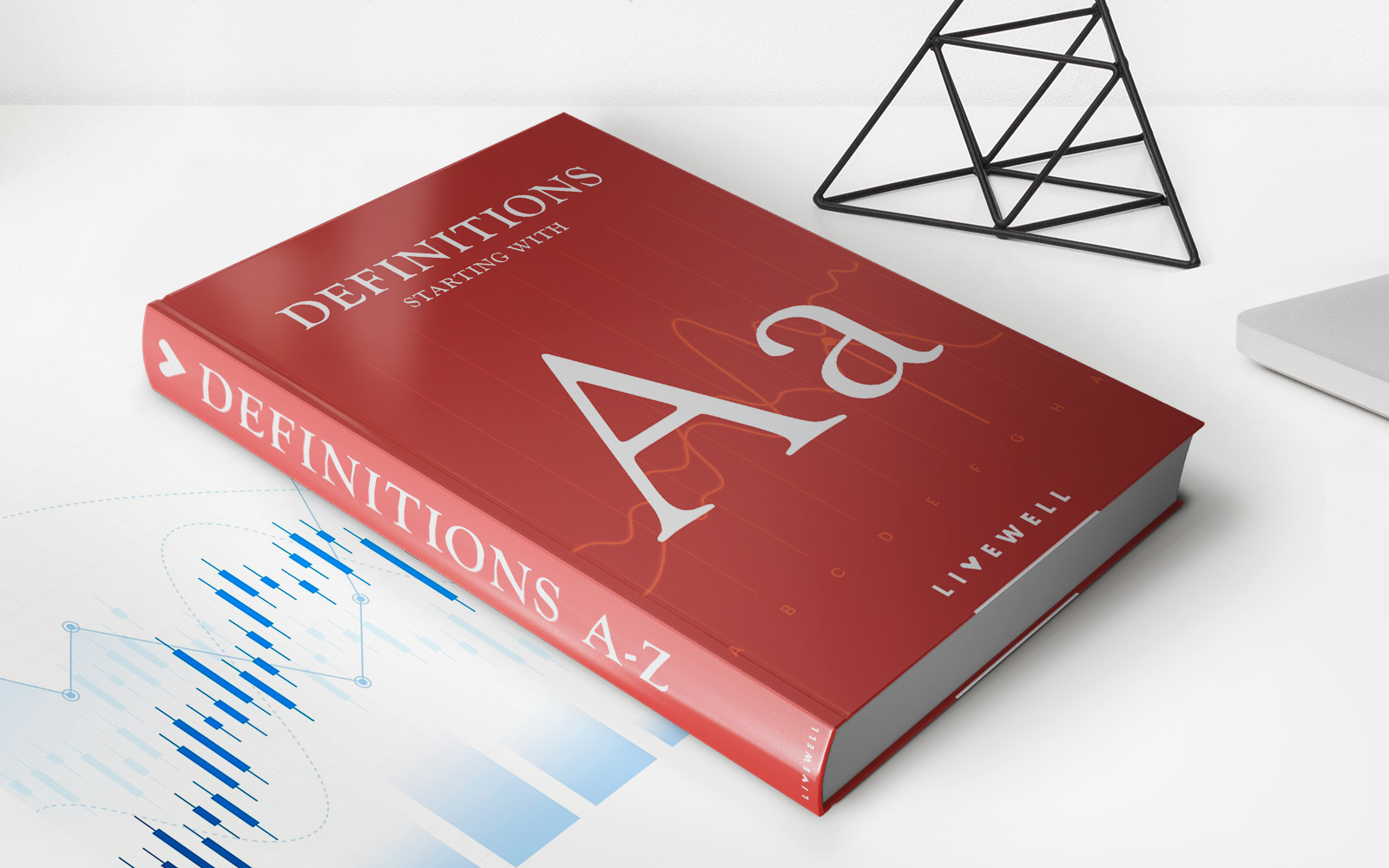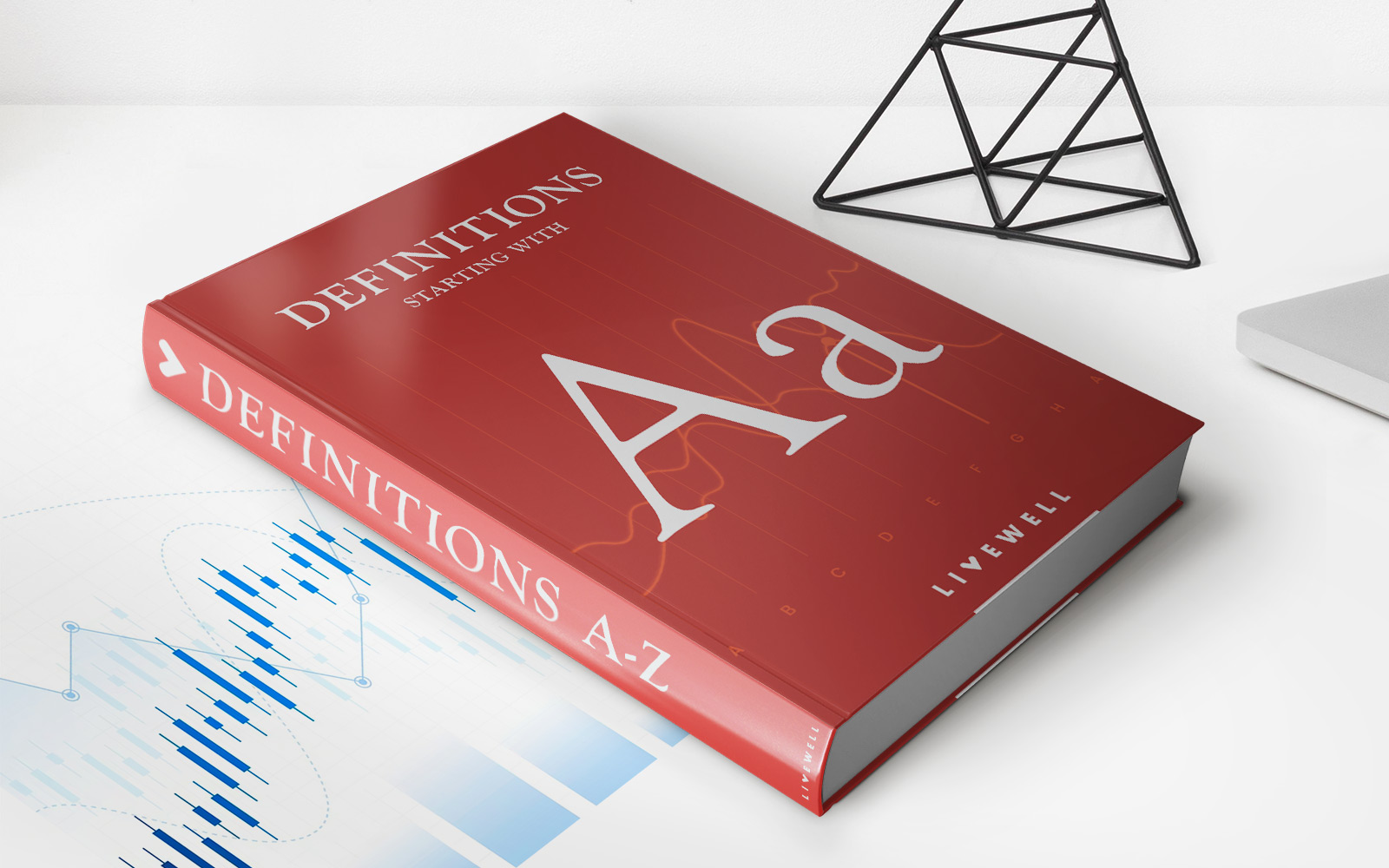

Finance
What Is The Fuel Tax Credit
Published: January 13, 2024
Discover what the fuel tax credit is and how it can benefit your finances. Stay informed about tax deductions and savings opportunities in the finance industry.
(Many of the links in this article redirect to a specific reviewed product. Your purchase of these products through affiliate links helps to generate commission for LiveWell, at no extra cost. Learn more)
Table of Contents
Introduction
Understanding the complexities of the tax system can be a daunting task, especially when it comes to the intricacies of tax credits. One such credit that many individuals and businesses may not be aware of is the Fuel Tax Credit. This credit is designed to provide financial relief for those who use certain types of fuel for eligible purposes.
The Fuel Tax Credit is an initiative implemented by the government to offset the cost of fuel used in specific situations, such as for business purposes or in off-road activities. It is an important consideration for individuals and businesses that rely heavily on fuel consumption, as it can help reduce overall expenses and increase the bottom line.
It’s important to note that the Fuel Tax Credit is different from any fuel excise taxes that are paid at the pump. While fuel excise taxes are included in the price of fuel, the Fuel Tax Credit allows for a refund or reduction of those taxes based on eligible usage.
In this article, we will delve deeper into the specifics of the Fuel Tax Credit, including its eligibility criteria, the application process, how to calculate the credit, and any limitations or exclusions that apply. By the end, you will have a comprehensive understanding of how the Fuel Tax Credit works and how it can benefit you or your business.
Let’s begin by exploring the eligibility requirements for the Fuel Tax Credit in the next section.
Definition of Fuel Tax Credit
The Fuel Tax Credit, also known as the Fuel Tax Rebate, is a credit provided by the government to individuals and businesses that use certain types of fuel for eligible purposes. It is designed to alleviate the financial burden of fuel costs incurred in specific situations, such as for business use or in off-road activities.
The credit is calculated based on the amount of eligible fuel consumed during a specific period, and it allows for a refund or reduction of the fuel excise taxes that were paid on that fuel. This means that individuals and businesses can potentially recoup a portion of the taxes paid on fuel when filing for the Fuel Tax Credit.
There are several types of fuel that qualify for the Fuel Tax Credit, including gasoline, diesel fuel, kerosene, and alternative fuels such as ethanol or biodiesel. However, it’s important to note that not all types of fuel or fuel usage are eligible for the credit.
The Fuel Tax Credit is regulated by the Internal Revenue Service (IRS) in the United States. The specific rules and guidelines for claiming the credit can vary depending on the type of fuel used and the purpose of usage. It’s crucial for individuals and businesses to familiarize themselves with these rules and ensure they meet the eligibility criteria in order to claim the credit accurately.
Next, we will explore the eligibility requirements for the Fuel Tax Credit in more detail.
Eligibility for Fuel Tax Credit
To qualify for the Fuel Tax Credit, individuals and businesses must meet certain eligibility requirements. These requirements ensure that the fuel usage aligns with the intended purpose of the credit. Here are the key factors that determine eligibility for the Fuel Tax Credit:
- Usage: The fuel must be used for specific purposes outlined by the government. Typically, this includes business activities such as operating vehicles or machinery, off-highway use, or use in certain agricultural operations.
- Type of Fuel: The fuel used must be eligible for the credit. This can include gasoline, diesel fuel, kerosene, and certain alternative fuels like ethanol or biodiesel. It’s important to consult the IRS guidelines to determine if the type of fuel qualifies for the credit.
- Proper Documentation: Individuals and businesses must maintain accurate records and documentation to support their claim for the Fuel Tax Credit. This includes providing receipts, invoices, or other documentation that clearly show the amount of fuel purchased and its designated use.
- Tax Status: Eligibility for the Fuel Tax Credit can vary depending on the tax status of the individual or business. For example, exempt organizations and government entities may have different rules and requirements when claiming the credit.
It’s important to thoroughly review the eligibility requirements and guidelines set forth by the IRS or relevant tax authorities to ensure accurate and compliant claim submissions for the Fuel Tax Credit. Failing to meet the necessary criteria may result in denial of the credit or potential penalties for incorrect claims.
Next, we will discuss how individuals and businesses can apply for the Fuel Tax Credit.
Applying for Fuel Tax Credit
Applying for the Fuel Tax Credit requires individuals and businesses to complete the necessary paperwork and provide supporting documentation to substantiate their claim. Here is a step-by-step guide on how to apply for the Fuel Tax Credit:
- Gather Required Information: Before applying for the Fuel Tax Credit, gather all the necessary information and documentation. This includes records of fuel purchases, invoices, receipts, and any other relevant documents that demonstrate the amount of fuel used for eligible purposes.
- Complete the Application: The specific application form required to claim the Fuel Tax Credit will depend on your tax jurisdiction. Consult the IRS website or your local tax authority to obtain the appropriate form. Fill out the application form accurately, ensuring that all required information is provided.
- Attach Supporting Documentation: Along with the application form, you will need to attach the supporting documentation mentioned earlier. This includes invoices or receipts that clearly show the quantity of fuel purchased and its designated use.
- Submit the Application: Once the application form is completed and the supporting documentation is gathered, it’s time to submit the application. Check with your tax authority to determine the acceptable methods of submission, such as online filing, mail, or in-person at a local tax office.
- Keep Copies of Documentation: After submitting your application, make sure to keep copies of all the documentation for your records. This will come in handy in case of any disputes or inquiries from the tax authority.
It’s important to note that the process and requirements for applying for the Fuel Tax Credit may vary depending on your tax jurisdiction. Therefore, it is recommended to consult the specific guidelines provided by the IRS or your local tax authority to ensure compliance and accurate submission of your application.
Next, we will explore how the Fuel Tax Credit is calculated and what factors are taken into consideration.
Calculation of Fuel Tax Credit
The calculation of the Fuel Tax Credit depends on several factors, including the type of fuel used, the purpose of usage, and the amount of eligible fuel consumed. Here is a general overview of how the Fuel Tax Credit is calculated:
- Determine Eligible Fuel: Identify the types of fuel that qualify for the Fuel Tax Credit. This may include gasoline, diesel fuel, kerosene, or certain alternative fuels. Make sure to reference the guidelines provided by the IRS or your local tax authority to ensure accuracy.
- Calculate Fuel Quantity: Determine the total quantity of eligible fuel consumed during the specific period for which you are claiming the credit. This can be done by referencing your records of fuel purchases and usage.
- Apply Tax Rate: The tax rate applicable to the Fuel Tax Credit will depend on the type of fuel used. The IRS provides a schedule of tax rates for various types of fuel. Multiply the applicable tax rate by the quantity of eligible fuel to calculate the total fuel tax amount.
- Subtract Exclusions or Limitations: Certain exclusions or limitations may apply to the Fuel Tax Credit. For example, there may be restrictions on claiming the credit for fuel used for personal purposes. Subtract any exclusions or limitations from the total fuel tax amount.
After completing these calculations, the final result will be the amount of Fuel Tax Credit that you are eligible to claim. This credit can be used to offset your tax liability or may be refunded to you, depending on the tax rules in your jurisdiction.
It’s essential to keep accurate records and documentation to support your calculations and claim for the Fuel Tax Credit. This will help ensure compliance with tax regulations and reduce the risk of potential penalties or issues with your claim.
In the next section, we will discuss any limitations or exclusions that apply to the Fuel Tax Credit.
Limitations and Exclusions for Fuel Tax Credit
While the Fuel Tax Credit offers a valuable opportunity to offset fuel-related expenses, it is important to understand that there are certain limitations and exclusions that apply. These limitations can restrict the eligibility for the credit or impose restrictions on claiming certain types of fuel or usage. Here are key limitations and exclusions to be aware of:
- Personal Use: The Fuel Tax Credit generally applies to fuel used for business purposes or in specific off-road activities. Personal fuel consumption is typically not eligible for the credit. Ensure that you are only claiming the credit for fuel used within the allowable parameters set forth by the tax authority.
- Non-Qualifying Fuel: There are specific types of fuel that may not be eligible for the Fuel Tax Credit. Examples may include aviation fuel, certain types of racing fuel, or fuel used for recreational vehicles. It is crucial to consult the guidelines provided by the IRS or your local tax authority to determine the eligibility of the fuel you have used.
- Incorrect Usage Allocation: If fuel is used for both eligible and non-eligible purposes, proper allocation is necessary to claim the credit accurately. Ensure that you allocate the fuel consumption appropriately and only claim the credit for the portion used for eligible purposes.
- Time Limitations: The Fuel Tax Credit must be claimed within a specific time frame. Failure to file the claim for the credit within the designated period may result in a loss of the opportunity to obtain the benefit. Be aware of the deadlines set by the tax authority and make sure to file the claim on time.
- Other Restrictions: Additional limitations may exist based on specific circumstances or fuel usage. These restrictions can vary depending on the tax jurisdiction. It is crucial to review the guidelines provided by the IRS or your local tax authority to understand any other restrictions that may apply to your situation.
Proper understanding and adherence to these limitations and exclusions will help ensure that you comply with the requirements of the Fuel Tax Credit. Failure to comply can result in penalties or the denial of the credit, so it is crucial to familiarize yourself with the applicable rules and regulations.
Next, let’s explore the importance of maintaining accurate records and documentation when claiming the Fuel Tax Credit.
Records and Documentation for Fuel Tax Credit
When it comes to claiming the Fuel Tax Credit, maintaining accurate records and proper documentation is critical. Having thorough documentation will not only substantiate your claim but also help ensure compliance with tax regulations. Here are some essential considerations regarding records and documentation for the Fuel Tax Credit:
- Fuel Receipts: Keep all fuel receipts, including those from fuel purchases for eligible purposes. These receipts should clearly indicate the type of fuel, quantity purchased, and date of purchase. Detailed fuel receipts serve as crucial evidence to support your claim.
- Mileage Logs: Maintain accurate mileage logs for vehicles used for business purposes or off-road activities. These logs should include details such as the date, starting and ending odometer readings, and the purpose of the trip. Mileage logs help establish the usage of fuel and the corresponding purpose.
- Invoices and Bills: If you use fuel for off-road activities, retain invoices or bills that confirm the equipment or machinery used, the duration of usage, and the quantity of fuel consumed. This documentation helps substantiate the claim for fuel used in these specific situations.
- Supporting Documents: Keep any additional documents that support your eligibility for the Fuel Tax Credit. This may include contracts, agreements, or job-specific documentation that demonstrate the need for fuel usage in your business operations.
- Periodic Summaries: Compile periodic summaries that summarize your total fuel consumption for the specific period in which you are claiming the Fuel Tax Credit. These summaries should include the total quantity of eligible fuel used and any relevant calculations for determining the credit amount.
By maintaining proper records and documentation, you will be equipped to accurately calculate and substantiate your claim for the Fuel Tax Credit. This not only helps reduce the risk of errors or inaccuracies but also provides evidence in case of any audit or inquiries from the tax authority.
Remember to keep your records and documentation organized and easily accessible. Create a system that allows you to retrieve necessary information efficiently when preparing your Fuel Tax Credit claim or responding to any queries from the tax authority.
Finally, let’s wrap up our discussion on the Fuel Tax Credit.
Conclusion
The Fuel Tax Credit can provide significant financial relief for individuals and businesses that use eligible fuels for specific purposes. By understanding the eligibility criteria, application process, calculation methods, and limitations for the credit, you can maximize its benefits and reduce the burden of fuel-related expenses.
Remember, eligibility for the Fuel Tax Credit relies on using qualifying fuel for eligible purposes. It is crucial to maintain accurate records and documentation to support your claim and ensure compliance with tax regulations. Failing to meet the necessary requirements or providing incorrect information can result in the denial of the credit or potential penalties.
When applying for the Fuel Tax Credit, gather all the required information, complete the application accurately, and attach all necessary supporting documents. Submit the application within the designated timeframe and retain copies of all documentation for your records.
Calculating the Fuel Tax Credit involves determining eligible fuel, calculating the quantity of fuel consumed, applying the appropriate tax rate, and accounting for any exclusions or limitations. Understanding these calculations will help you accurately determine the credit amount you are eligible to claim.
Be aware of the limitations and exclusions that apply to the Fuel Tax Credit, such as restrictions on personal use, limitations on non-qualifying fuel, and time limitations for claiming the credit. Adhering to these limitations will help ensure compliance and avoid potential issues with your claim.
Proper records and documentation are crucial for supporting your claim for the Fuel Tax Credit. Keep fuel receipts, mileage logs, invoices, and any other supporting documents organized and easily accessible. These documents serve as evidence of your eligible fuel usage when filing for the credit.
In conclusion, the Fuel Tax Credit offers a valuable opportunity to offset fuel costs for eligible individuals and businesses. By understanding the requirements, calculations, and documentation needed, you can navigate the process with confidence and maximize the benefits of this credit.
Always consult the guidelines provided by the IRS or your local tax authority to ensure compliance and accurate claim submissions. By leveraging the Fuel Tax Credit effectively, you can help reduce your overall fuel expenses and improve your financial bottom line.














